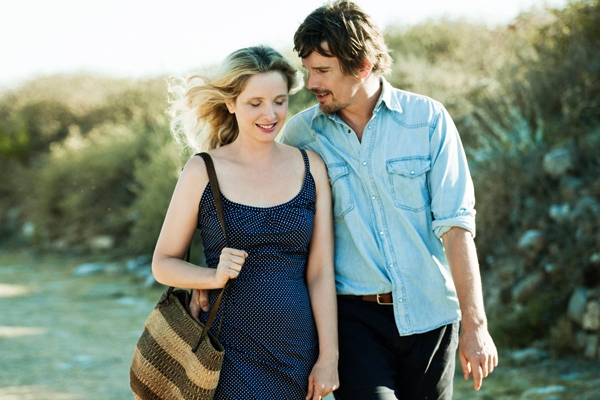To quote the watch adverts, here’s a timepiece that will last a lifetime: the Doomsday Clock. And the reason it will last that long? Because when it stops, so will your life. This is the figurative clock that has been maintained by a bunch of Chicagoan atomic scientists since 1947. The closer its hands are to midnight, the closer we are to nuclear annihilation. It started off at seven minutes to midnight. But now, as any paranoiac will tell you, it is two minutes further on. We are, in this one specific sense, five minutes away from The End.
Did Richard Linklater have this in mind when he named his new film Before Midnight? Probably not. This isn’t, in truth, a film about death by fission and fusion, but a simple middle-aged love story. He is Ethan Hawke’s Jesse, a freewheeling writer and romantic. She is Julie Delpy’s enigmatic Celine. They first met on a train from Budapest 18 years ago, before rekindling their relationship in Paris nine years later. But you probably knew that already: it was shown in Before Sunrise (1995) and Before Sunset (2004). The difference now is that Jesse and Celine are married.
Yet, despite all that, the hands of a Doomsday Clock do sweep through this film. Previously, we saw Jesse and Celine walking hand-in-hand through cities such as Vienna and Paris, falling in love, as if they existed in a glass bauble. But here, everyday life has broken through. The first scene sees Jesse bidding farewell to his teenage son from a previous marriage. He and Celine now have twin daughters in tow. There are more people around their relationship, and pressures on it. ‘This is how people start breaking up,’ deadpans Celine, ‘…it’s ticking.’








Comments
Join the debate for just £1 a month
Be part of the conversation with other Spectator readers by getting your first three months for £3.
UNLOCK ACCESS Just £1 a monthAlready a subscriber? Log in